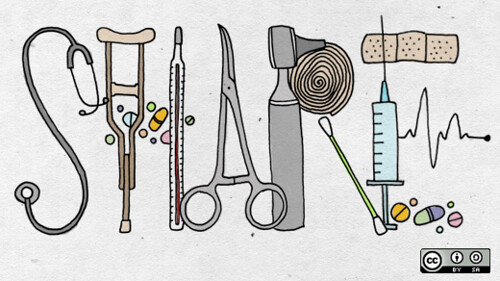A few weeks into the pandemic, amidst a haze of CDC press conferences, Tiger King memes, and toilet paper shortages, the University of Arizona College of Medicine-Phoenix (UACOMP), class of 2022 was oriented into the Community Health Mentor Program (CHMP). Many of us were not completely sure what this component of our Longitudinal Patient Care (LPC) curriculum was even about, and were more concerned with whether or not we would be embarking on the long-awaited clinical rotations of 3rd year, and if so when. Yet once the program was outlined, my interest was piqued.
The premise of the CHMP is this: interprofessional groups are made of one MD student (from UACOMP), one PA student, one OT student, and one PT student (all from NAU), and the group is assigned to a “community mentor”. The mentor is a member of the community who has at least one chronic medical condition, and has volunteered to share their experiences as they live their lives and interact with the healthcare system. Over the course of the year, groups meet with their respective mentors for about an hour every other month, to discuss a predetermined topic. The interprofessional team works together to guide the conversation with the mentor, then debriefs sans mentor and submits a reflection.
Of course, being 2020, our meetings took place via Zoom, rather than the traditional protocol of actually going to the mentor’s home. And each gathering would bear the pall of working on the front lines of a global pandemic. What was everyone seeing in their respective rotations? Was everyone ok? How was our elderly mentor faring, being isolated from her many children and grandchildren? However, I still gained so much from the experience, and loved getting to know my fellow allied health students and our sweet spunky mentor!
There were whispers of worries in my cohort that the obligation of participating in the CHMP would be an added stress, as we navigated an already difficult chapter in our lives. We did end up beginning our clinical rotations in July, right as the COVID numbers surged in Arizona. Depending on the rotation, we could be working up to 16-hour days, while trying to squeeze in studying for shelf exams, and hopefully some personal wellness! Did we really need one more thing on our plates? However, I was pleasantly surprised by the ease and value of incorporating the CHMP afternoons into my schedule. The time was protected for us, so it was never an issue for me to let my resident or attending know that I needed to duck into a conference room for the meeting. A few days before the meeting, the LPC team emailed our group’s information on that session’s topic, along with a discussion guide we could follow. After the meeting with our mentor, our group stayed on Zoom for another 20 minutes or so while we collaborated on the document that we would need to submit later that day. Everything was logistically simple and ran smoothly.
Most importantly, I truly enjoyed talking to our mentor and colleagues about topics such as activities of daily living, nutrition, community resources, and advanced directives. After a busy day on the wards, rushing from patient to patient, it was refreshing to be able to take my time with just one person. I took note as she relayed various frustrations about dealing with the healthcare system, tucking those morsels away for a time when I could do differently. And I made a careful study of the students of other professions. It was interesting to realize that the OT and PT students were most concerned about the mobility implications of various medications, and to hear their expertise in assessing and optimizing activities of daily living. My PA counterpart and I compared and contrasted our roles in healthcare, learning how we could best work together for the common good of our patients.
Overall, the Community Health Mentor Program turned out to be something I looked forward to with anticipation, and will certainly be something I fondly look back on. I appreciate the opportunity to further cultivate a holistic approach to patient care, and to foster a deeper sense of interprofessionalism wherein all members of the healthcare team regard one another with understanding and respect.
Jessica Pirkle is a member of the Class of 2022 at the University of Arizona College of Medicine-Phoenix. She completed a BA in Spanish at ASU and worked for several years as a school teacher before switching gears and obtaining an MS in Health Care, also at ASU. When not studying the marvels of medicine, she enjoys making and eating delicious healthy food with her four children, and daydreaming about being a music festival groupie.

